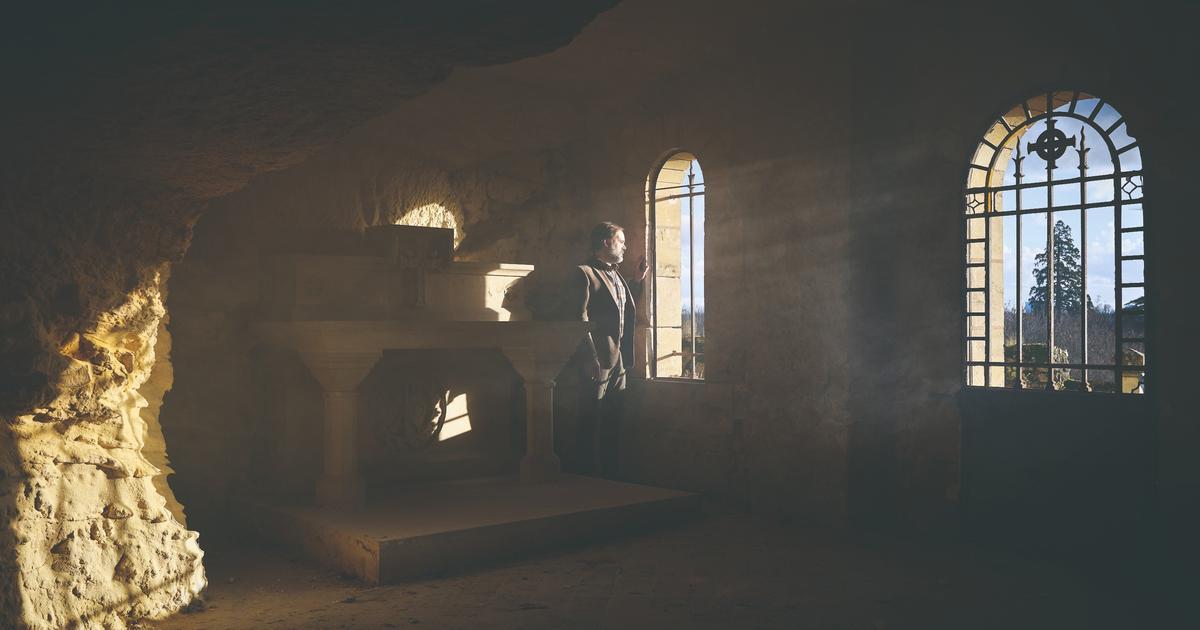Many of the great personalities of the historicist interpretive movement founded their own groups decades ago in order to be able to defend in practice, and with their hands free, their theoretical postulates: Nikolaus Harnoncourt and the Concentus Musicus of Vienna; Frans Brüggen and the Orchestra of the 18th century; Gustav Leonhardt and the Leonhardt-Consort; Christopher Hogwood and The Academy of Ancient Music; John Eliot Gardiner and the Monteverdi Choir and Orchestra; Trevor Pinnock and The English Concert; Ton Koopman and the Amsterdam Baroque Orchestra. The first four have already died and their creatures have never shone like when they became the closest thing to the second skin of their creators. The last three are still happily active,But the little competition of yesteryear stands in sharp contrast everywhere with the proliferation of groups that agree with the creed that they themselves helped spread: parents were forced in their day to row against it, while their children or grandchildren sail now. calmly with the wind in favor. On the other hand, as those same postulates defended in the footnotes, interpretation is a living organism in permanent evolution, so that the revolutionaries of yesteryear run the risk of being seen by some as the conservatives of home: the passage from the barricades toAs those same postulates defended in the footnotes, interpretation is a living organism in permanent evolution, so that the revolutionaries of yesteryear run the risk of being seen by some as the conservatives of home: the passage of the barricades to theAs those same postulates defended in the footnotes, interpretation is a living organism in permanent evolution, so that the revolutionaries of yesteryear run the risk of being seen by some as the conservatives of home: the passage of the barricades to the
establishment
was never easy. Only Harnoncourt knew how to do it like no one else.
Ton Koopman was one of those young iconoclasts, with long hair and unorthodox manners, who began to shine with his own light in the 1970s. His status as a disciple of Gustav Leonhardt gave him a patina of respectability, although it was immediately clear that the teacher's sobriety had nothing to do with the student's incandescent fantasy. The Dutchman is, above all, a gifted keyboard player, although very uneven in his public appearances, where he relies on his natural talent and the inspiration of the moment. As a director, he has performed feats available only to the chosen ones, such as the recording of all the Bach Cantatas or, a much rarer climbing peak, of the
opera omnia
by Buxtehude. Also here the quality is very changeable, perhaps because it is difficult to maintain the level when you are so prolific and not particularly prone to rehearsals. In addition, we must not forget that, no matter how long the groups remain, people change and in the 42 years that have passed since Koopman created the Amsterdam Baroque Orchestra, there have been dozens and dozens of instrumentalists who have passed through their ranks. : the stability of their templates is a hallmark of symphony orchestras, but it constitutes an exception in the world of early music, which tends to live in an almost permanent metamorphosis (and improvisation), in line in some way with some of its most established interpretive precepts: nothing should be repeated a second time exactly like the first.
On some dates when other years we were choking, like a Christmas indulgence of polvorones,
Handel's
Messiahs
, and the participants organized by the Fundación la Caixa and who mobilized thousands of enthusiastic amateur singers throughout Spain have been absent for two years, Last weekend the National Orchestra of Spain has programmed the first three cantatas of
Bach's Christmas Oratorio
and Koopman has brought us a jubilant program on Monday, but only in part Christmas, a condition that is strictly applicable to Corelli's concert, "
fatto per la notte di Natale
”, As can already be read in the first edition, printed precisely in Amsterdam by Estienne Roger in 1714. We must raise our spirits, we must adopt a celebratory attitude despite everything, it seems to be the message of an orchestra that is the ambassador of a country, the Netherlands, where a new
de facto
lockdown has just been implemented .
It is more than possible - one can imagine - that this concert has even been in serious danger of not being able to be held, because any musical group is not
Covid-friendly
by nature and, as we know from last year's bitter experience, rehearsals, trips and concerts are one of the first pieces of the cultural board to fall.
More information
333 reasons to love Bach
Bach was a largely Lutheran church-service composer, who had almost completely banished Latin from the music played in churches: vernacular choirs were, in fact, at the time a decisive propaganda element and a essential vehicle for the rapid diffusion of new reformist theories. Latin only appears incidentally in the
Mass in B minor
, in its so-called short Masses and in the
Magnificat
, which has been the work chosen by Koopman to open his concert and which has come down to us in two different versions: the one performed a few months after Bach's arrival in Leipzig, at the Vespers service on December 24, 1723, containing the interpolation of four hymns with unmistakably Christmas texts (among them, the famous
Vom Himmel hoch
, which would serve as the basis for the extraordinary
BWV 769 Canonical Variations
long after
for organ);
and a second, which has been Koopman's surprising choice, written in D major (instead of the E flat major of the first version), devoid of the four Christmas pieces and which must have seen the light sometime between the years 1732 and 1735. Simon Heighes has pointed out, for example, the possible date of July 2, 1733, when the feast of the Visitation of Mary coincided with the end of the mourning for the death of the Elector of Saxony, Frederick Augustus, as a possible date premiere.
The soprano Ilse Eerens (from behind), singing the section 'Et exsultavit spiritus meus' from Bach's 'Magnificat'. Rafael Martín / Ibermúsica
Already in the initial chorus things did not start well and, unfortunately, they continued until the end of the concert. Without knowing the intrahistory, it is difficult to elucidate the causes, but the truth is that there was almost nothing that could be said to be in place or, even less, that aroused admiration or emotion. The orchestra - impossible to know if it was made up of headlines or reserves - sounded confused, washed out and with unfortunate solo interventions: the three natural trumpets, which did not have their afternoon, failed from the very beginning and touching the abyss in
Fecit potentiam
, or the oboe d'amore in
Quia respexit humilitatem
, with notorious out of tune. Worse was almost the participation of the four vocal soloists, none of them known, apparently nervous, with small voices, a fearful way of singing and very poor techniques. Everything sounded under-rehearsed, pinned, fragile. It is true that the masks do not help, especially in the choir, which conveyed the impression of singing like a half throttle, but there were non-conjunctural details (such as the hesitant entry of the first sopranos in
Suscepit Israel
) that pointed higher. The
fugato
of
Sicut Locutus
, for example, sounded decaffeinated, without force, without clarity. Altogether it was a
Magnificat
to forget, from which only a few glimpses of Koopman fantasy were spared, barely audible in the huge Symphony Hall, in the continuum when he played the positive organ in the arias (never in the choruses) and minimal directorial details, such as the final seven bars by
Fecit potentiam
, after the harmonic surprise over the word “
superbos
”.
After him - instead of before him, as would have been more logical musically - and as the end of the first part, the Dutchman conducted the
Concerto grosso op.
6 no.
8
by Corelli, a composer known to Bach (he composed his
Fugue BWV 579
from a subject borrowed from
Sonata op. 3 No. 4
from the Italian), but that it was an odd choice between the two celebratory works (a song and a hymn) by Bach and Handel. Koopman also made the unusual decision to keep flutes, oboes and bassoons on stage: thank goodness trumpets and timpani left. And the ever elusive Corelli, simple but deep, brief but substantial, diaphanous but poetic, sounded almost more like Handel, without the unmistakable personality that solo stringed instruments lend him. Koopman even invented music that is not written for flutes, which was a loss, not a gain, and the wind instruments were entrusted exclusively to the beginning of the
Vivace
. To top it all, the
concertino
sections
(as opposed to the
tutti
) were weighed down by constant detuning, almost always due to the second violin.
Not even Catherine Manson, the once extraordinary Scottish violinist and longtime collaborator with Koopman, seemed capable of playing at her usual level.
The use of the oboes and the bassoon to play the staves of the last movement made a little more sense, so
closely
related to
Handel's
Pifa
del
Mesías
for its pastoral connotations, but it was, again, a Corelli to be forgotten.
Overview of the Amsterdam Baroque Orchestra and Choir during their concert in the Symphonic Hall of the National Auditorium.Rafa Martín / Ibermúsica
Handel composed his
Te Deum de Dettingen
to celebrate a military victory of the Austrian and British troops over the French in 1743. It premiered on November 27 of that year in the presence of King George II at the Palace of St. James. If
Bach's
Magnificat hadn't sounded like German music and the
Concerto grosso
Corelli's seemed stripped of his intrinsic Italian personality, Handel's work was hardly recognizable as English ceremonial and celebratory music. With a choir also with five voices, as in the work of Bach, the choir once again exhibited all its weaknesses, with a clear imbalance in favor of the sopranos, while the three contraltos and the four basses barely had a defined sound presence, not even when the latter sang alone, as at the beginning of "
The glorious company of the apostles
." The male vocal soloists again made a very poor impression: Clint van der Linde, the countertenor, could hardly be heard at the beginning of
All the earth doth worship Thee
, there was a major clash between what the baritone Jesse Blumberg sang (
Thou art the King of Glory
) and how bland it sounded.
The supposedly festive and exultant choirs arrived again devoid of tension, of strength, of packaging, as happened in the extraordinary fugue
And we worship Thy name
.
The closest thing to nonsense.
Ton Koopman conducts again, out of the program, the final chorus of Handel's' Te Deum de Dettingen'.Rafa Martín / Ibermúsica
The audience, perhaps eager to forget about the bad news that beset us, insisted on applauding (even throwing bravos) until they got a tip, which was none other than the repetition of the final chorus of Handel's work,
O Lord, in Thee have I trusted
: a
full-fledged
capo day
. It is not normal either that, in their first performance in the half-century of Ibermúsica's history, the Dutch did not bring a different music prepared. And they had the very easy choice, because the logical thing would have been one of the five movements of
The Dettingen Anthem
, also by Handel, a sister work we just heard. But in this case, the Amsterdam Baroque Orchestra and Choir have been very poor ambassadors of the glorious tradition of the Netherlands as the spearhead of the historicist performing revolution. The country is having a very bad time these days and everything takes its toll. In the last verse of the
Te Deum
(in the English version of the
Book of Common Prayer
used by Handel) we read: "Oh Lord, I have trusted you, do not let me be eternally confused."
In the projected subtitles, however, we read: "In you, Lord, I have trusted, I will not be disappointed forever."
On Monday there were plenty of reasons to leave the National Auditorium disappointed.
But 2022, which at least in Madrid is going to have a spectacular start (Lise Davidsen and Leif Ove Andsnes at the Teatro Real, Yevgueni Kissin at Ibermúsica, Elisabeth Leonskaja at the CNDM), will surely bring us better concerts.







/cloudfront-eu-central-1.images.arcpublishing.com/prisa/56XAYHM37FH45ARX6TUXG63UWQ.jpg)
